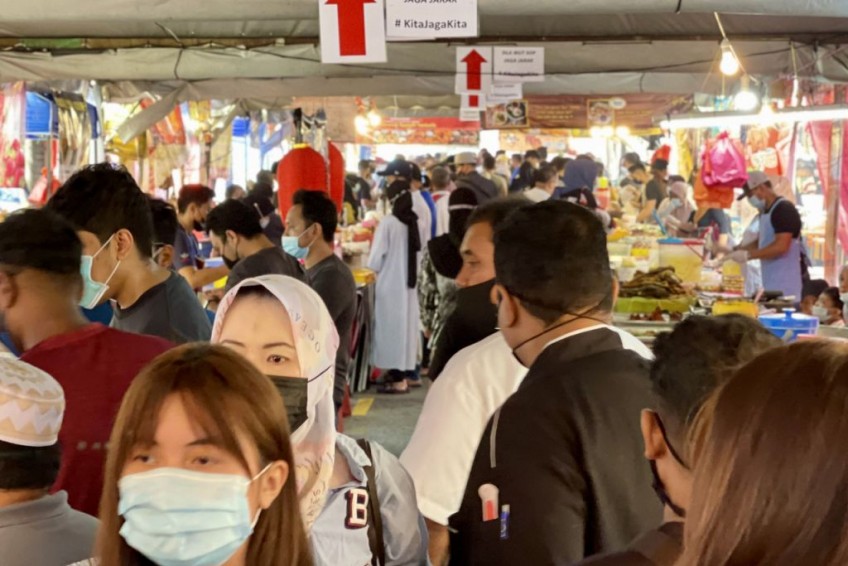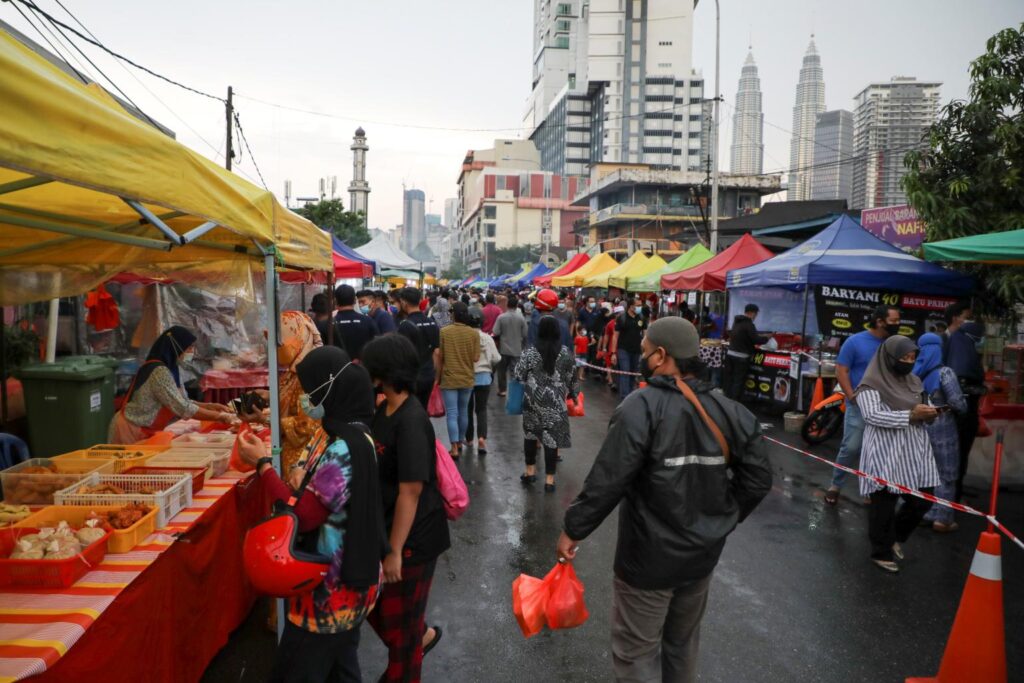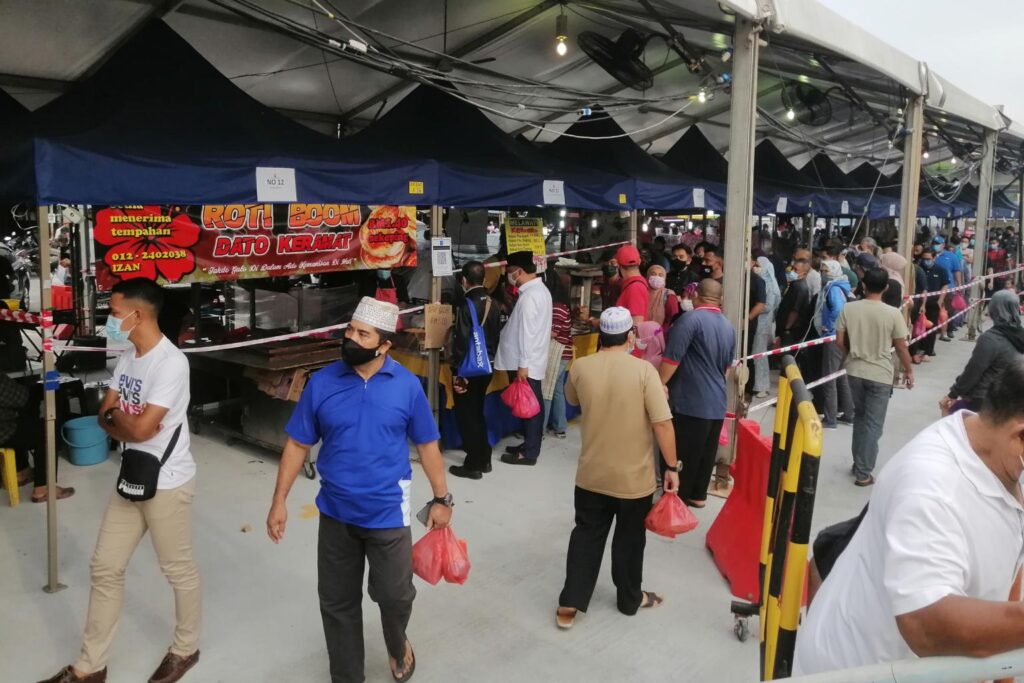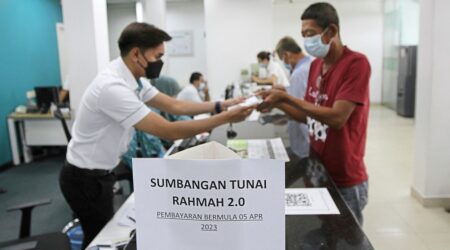Crowded Ramadan bazaars in Malaysia leave many fearing a rise in Covid-19 cases

ST PHOTO: SHANNON TEOH
Visuals of packed Ramadan bazaars in Malaysia making the rounds on social media and messaging apps have stoked concerns of a surge in Covid-19 cases due to low compliance of standard operating procedures (SOPs).
Checks by The Straits Times at several params — short for the Malay term “pasar (market) Ramadan” — around the Klang Valley found physical distancing non-existent at some, especially due to haphazard queues. Visitors were also entering through non-designated points, making it difficult to control headcounts.
Corporate strategist Khairul Hashim, 34, visited a param near his home in Seri Kembangan just outside Kuala Lumpur. “We went on the first day and after seeing there was simply no space for physical distancing, we never went back,” he told The Straits Times.
Unlike last year, when the markets were cancelled in the early days of the global pandemic, the government has decided to allow them to operate during this year’s Muslim fasting month.
This is despite the number of infections ticking back to over 2,000 daily from Thursday (April 15) to Saturday, far higher than in the same period last year when it was mostly in double-digits.
Malaysia recorded 2,331 new cases and five deaths on Saturday, bringing the total infections to 372,859 and the death toll to 1,370.
Prime Minister Muhyiddin Yassin insisted on Thursday that there will not be a third nationwide Movement Control Order restricting wide swathes of commercial and social activity.
His government has also assured the public that stricter enforcement at Ramadan bazaars will soon be in place with the involvement of local authorities.
Housing and Local Government Minister Zuraida Kamaruddin said viral images of packed params were from the first and second day when people had just returned to Ramadan bazaars after last year’s hiatus.
“With enforcement at the local level, there will be more effective control,” she said on Friday, referring to local municipal councils which are under the purview of respective state governments.
But Federal Territories Minister Annuar Musa warned that the 66 bazaars in Kuala Lumpur, Putrajaya and Labuan “will be shut down if a Covid-19 outbreak takes place due to SOPs not being complied with.”
“It is mandatory to comply with the SOPs imposed especially in terms of the number of visitors, but apparently, it was not complied, to the point that the physical distancing exercise was not keeping with what we want,” he said on Thursday.
Some venues, however, have strictly adhered to the limit of two visitors per stall, such as the Queen Street bazaar in Penang which only allows 40 visitors at any one time.
Still, given the requirement to space out stalls – some bazaars have about 30 per cent less vendors – the atmosphere and selection of delicacies have been found wanting at some params.

In Kuala Lumpur’s satellite city Petaling Jaya, the Kelana Jaya bazaar “gave numbered tags to visitors, those without tags can’t go in,” said homemaker Fatimah Adawiyah, 49. “I will go again but there were not that many choices like before.”
Kelantan and Sabah have decided not to allow bazaars due to a sharp increase in recent coronavirus infections, while some venues in other states have been shut down due to the failure to comply with SOPs.
For example, the Tok Adis bazaar in Terengganu will be closed for the rest of the month while the organiser takes steps to ensure heath and safety guidelines are adhered to.













Leave a Reply